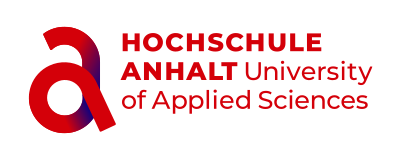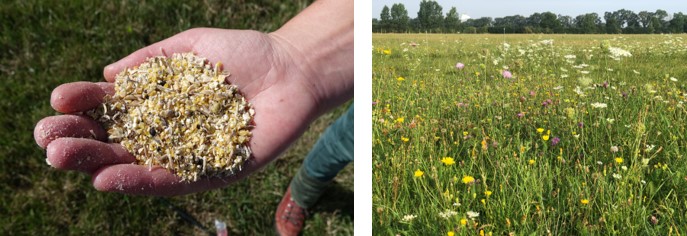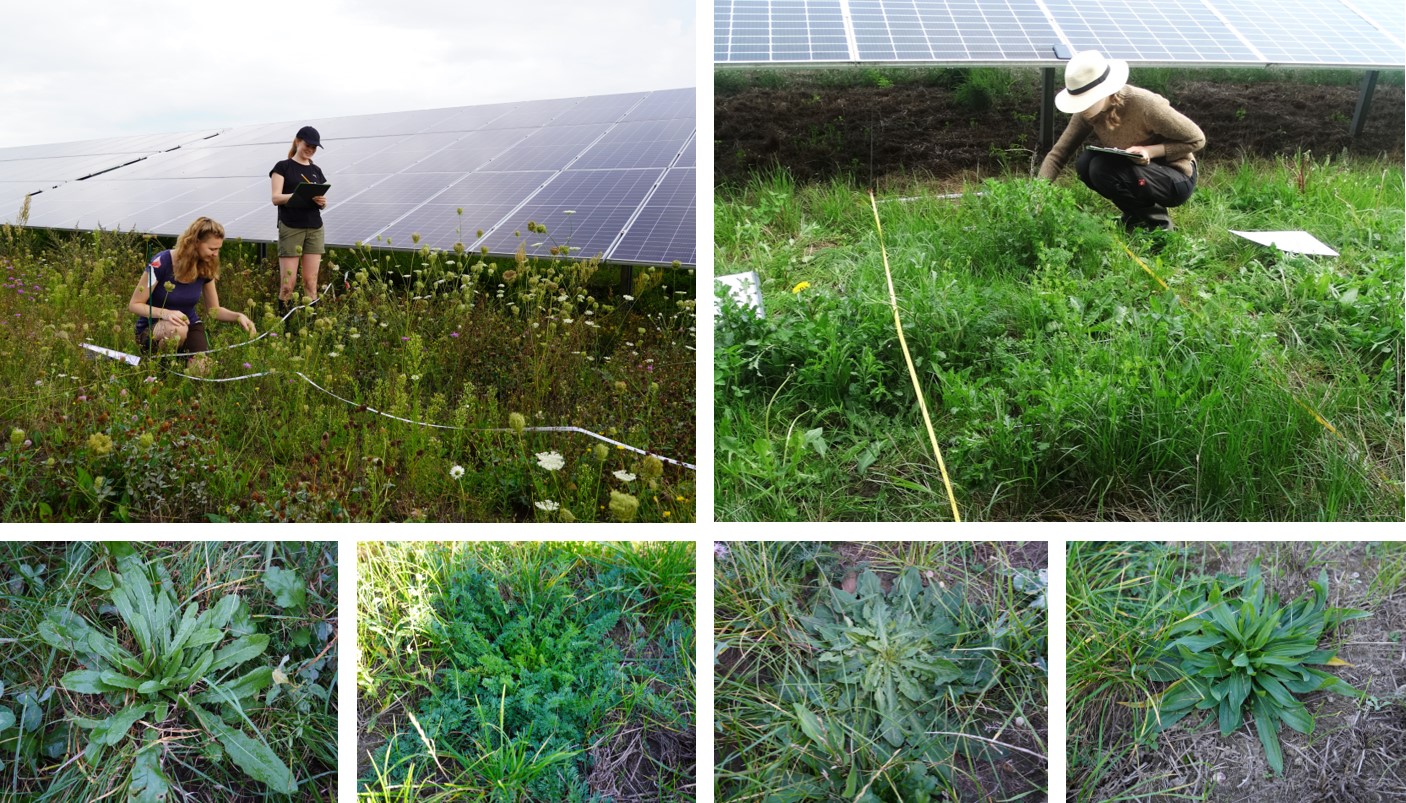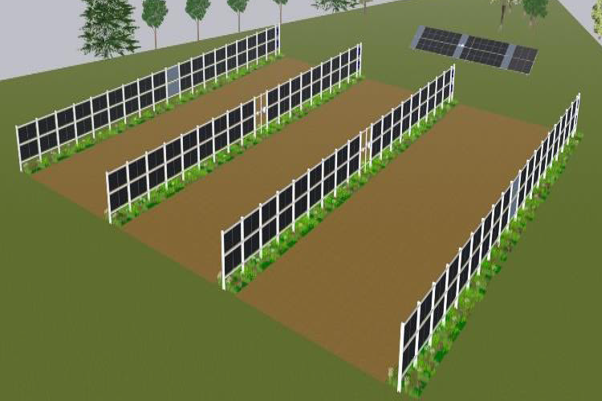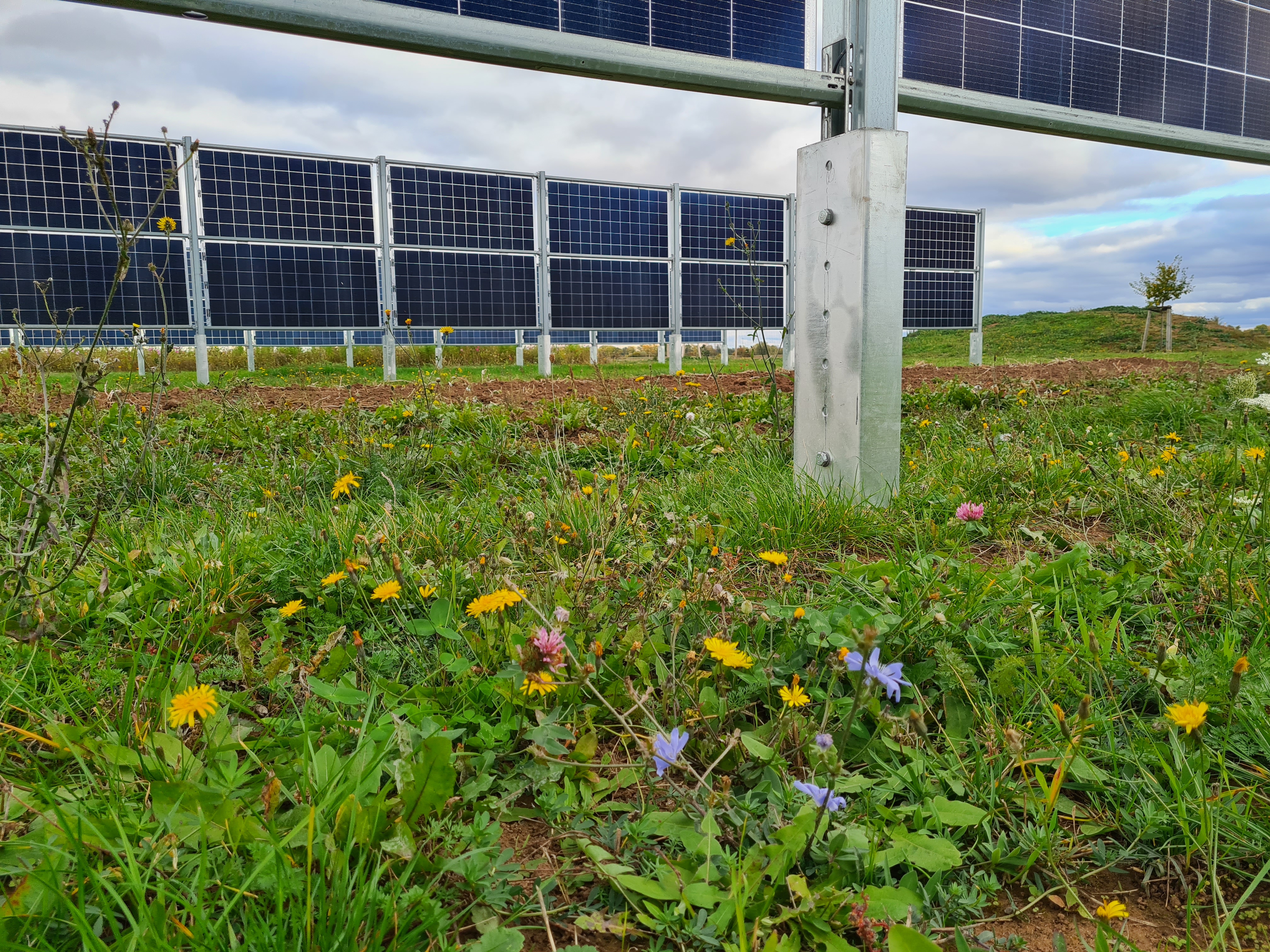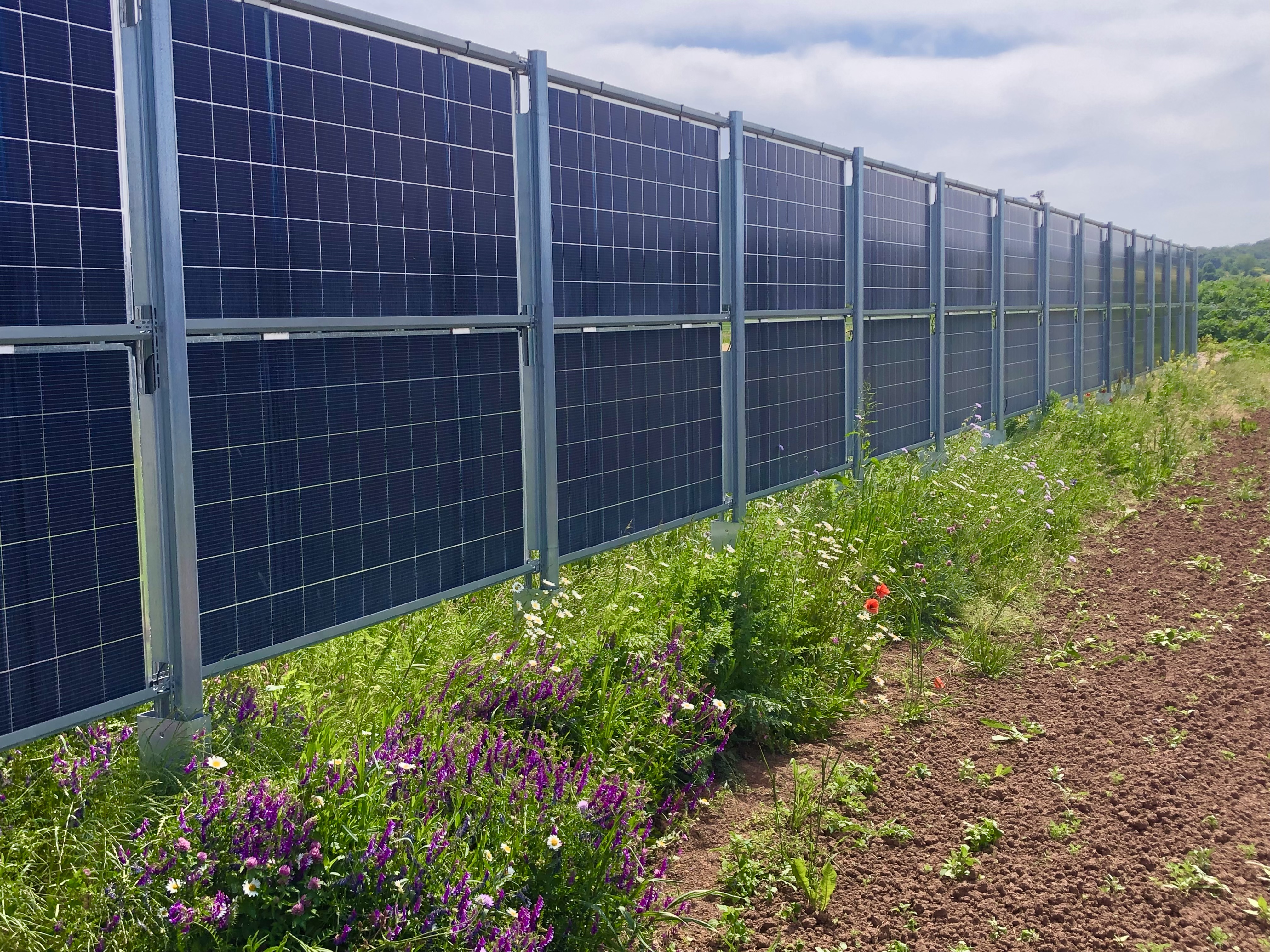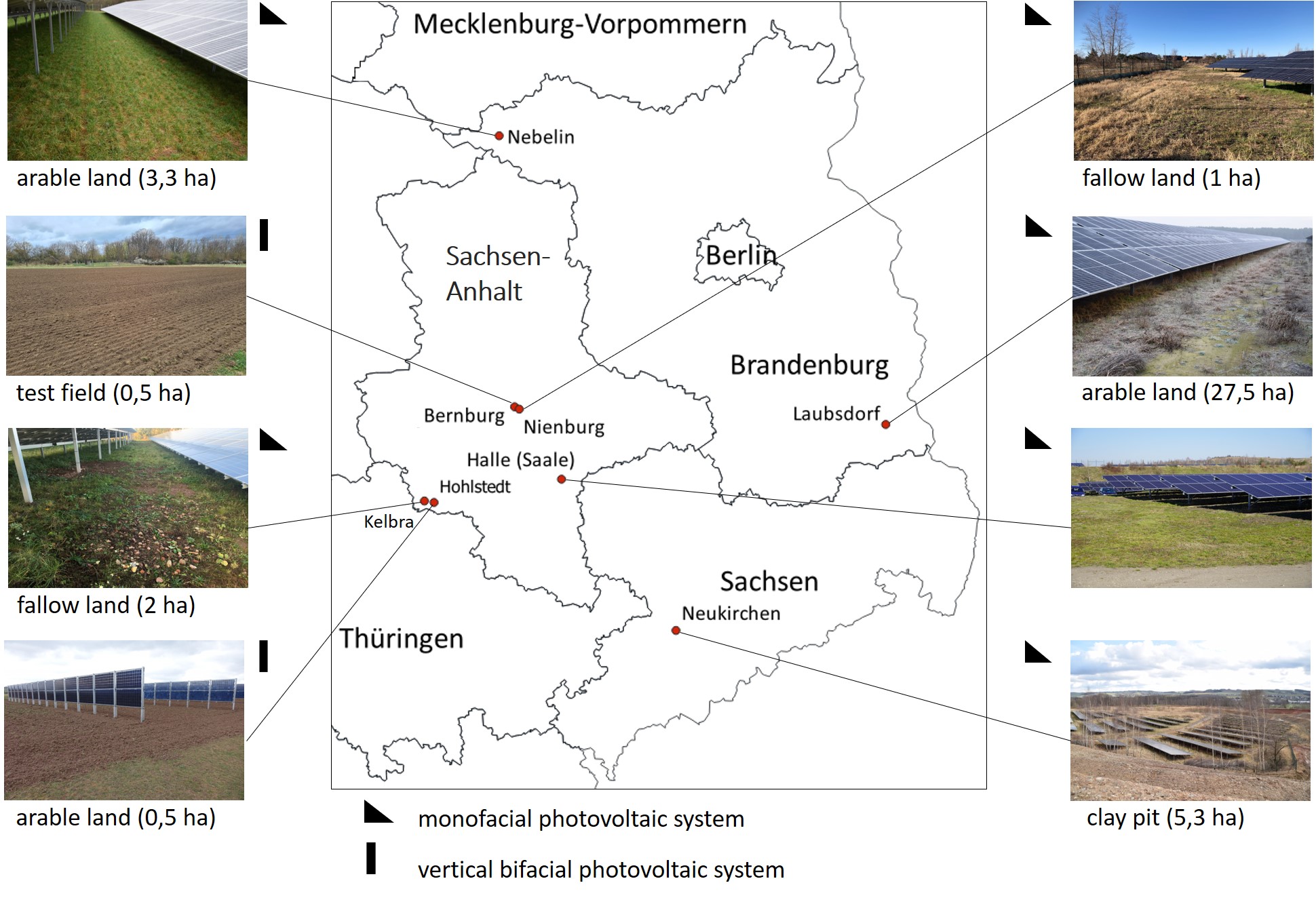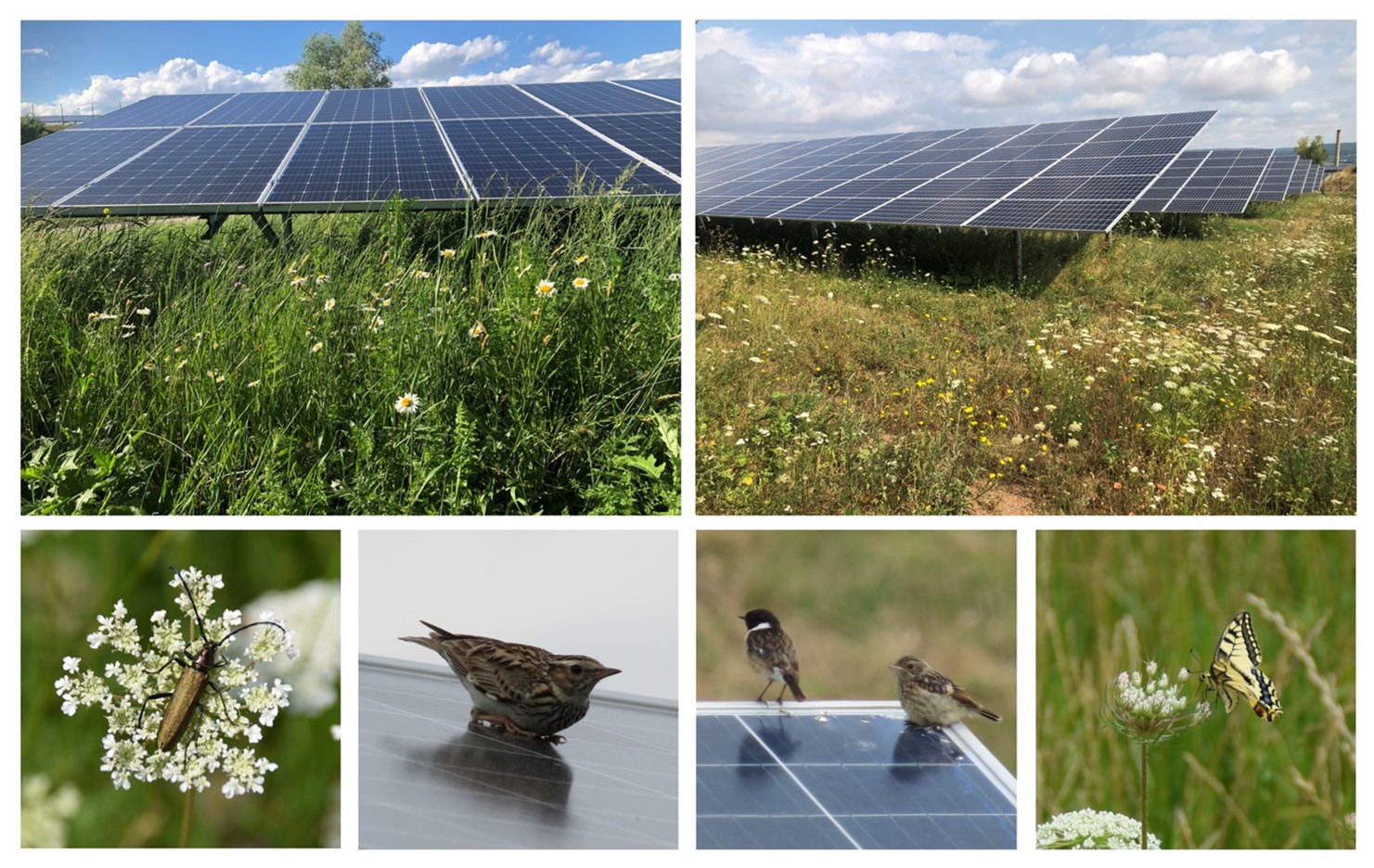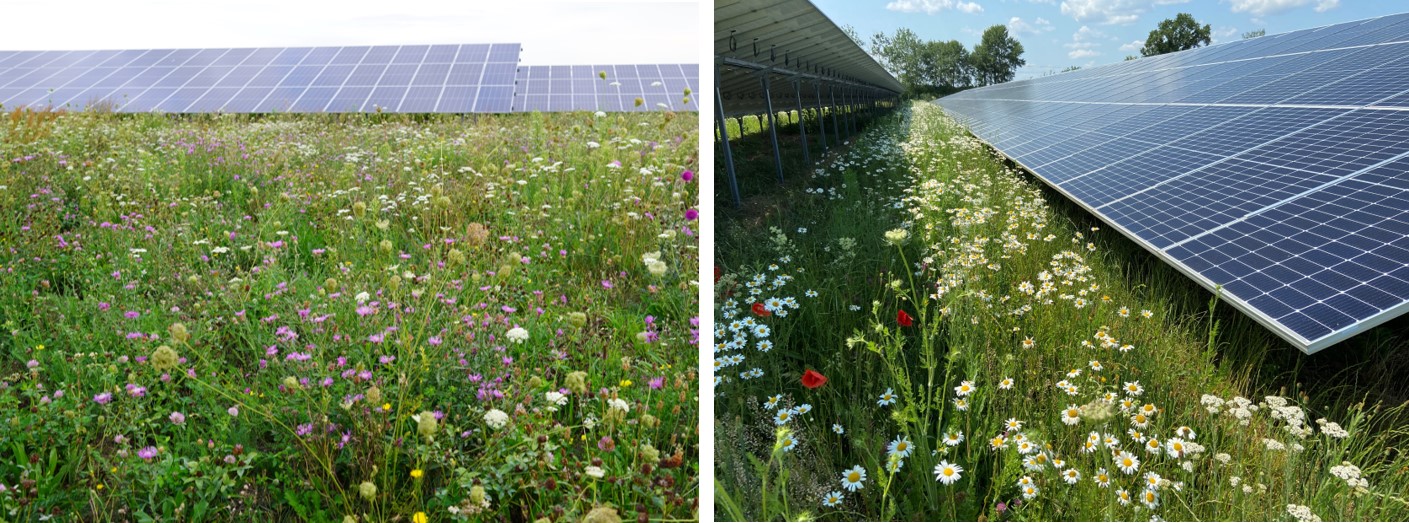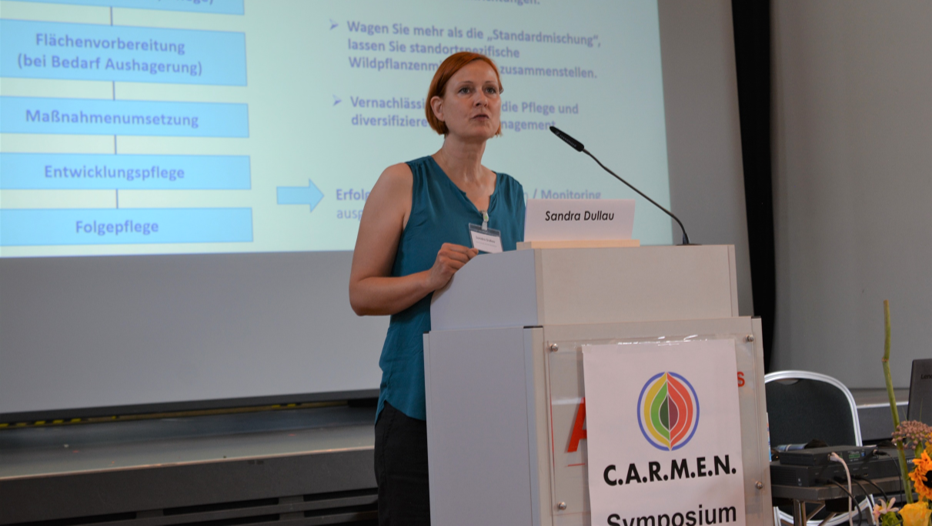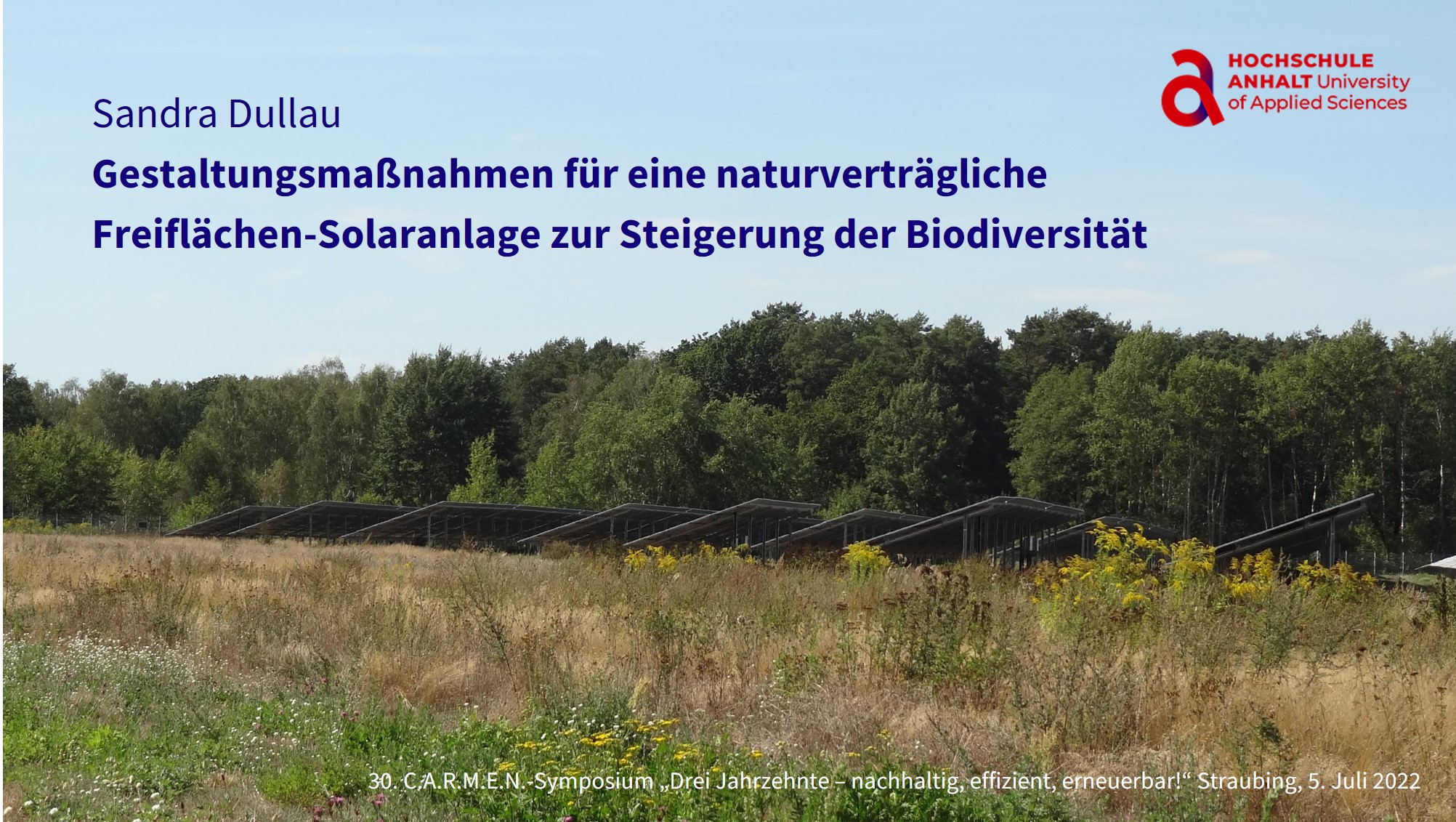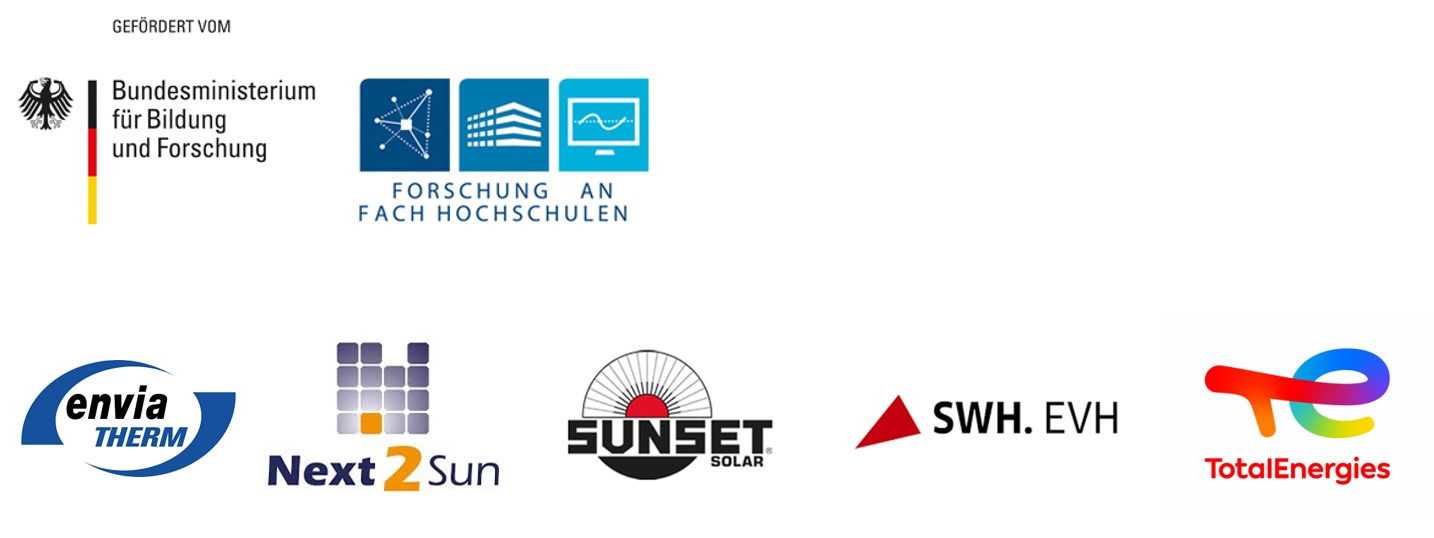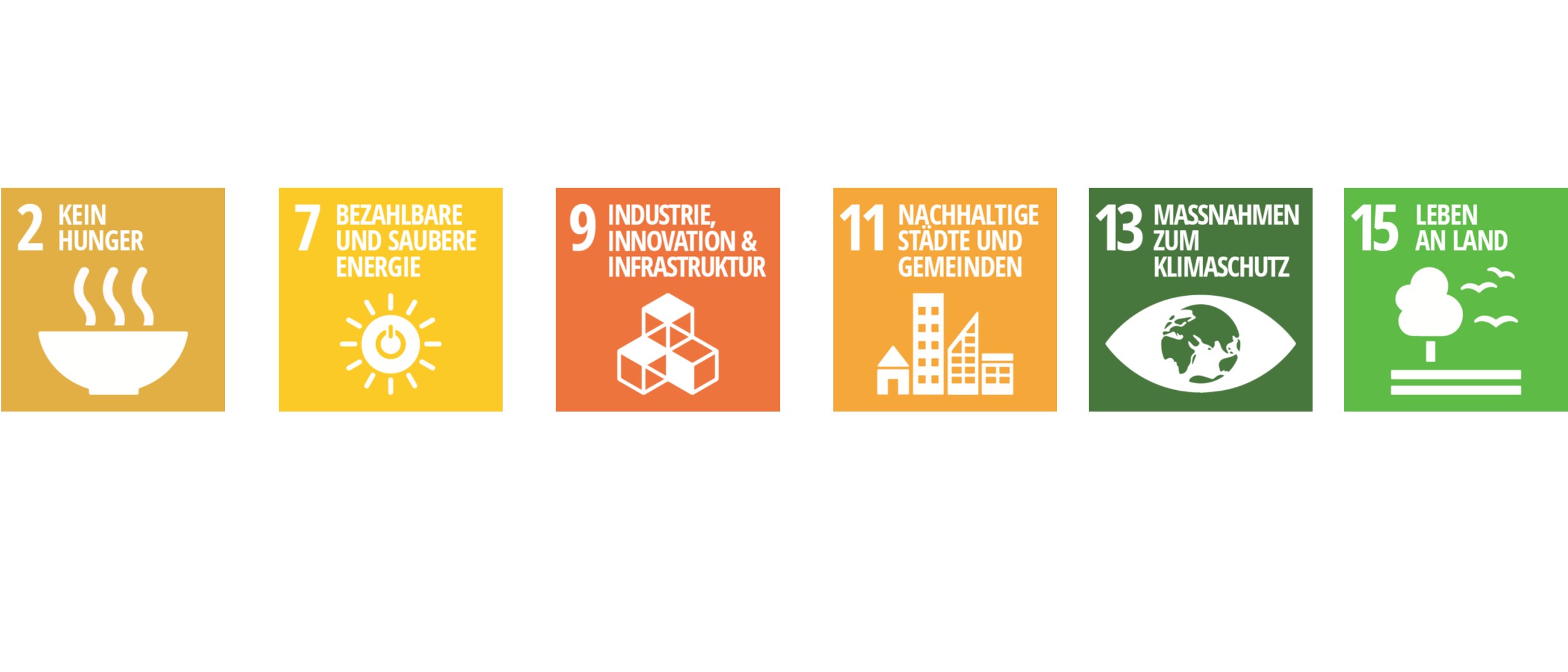Biodiversity in solar farms - Innovative concepts and establishment of demonstrators to improve reconciliation of photovoltaic systems, nature conservation and agriculture (BIODIV-SOLAR)

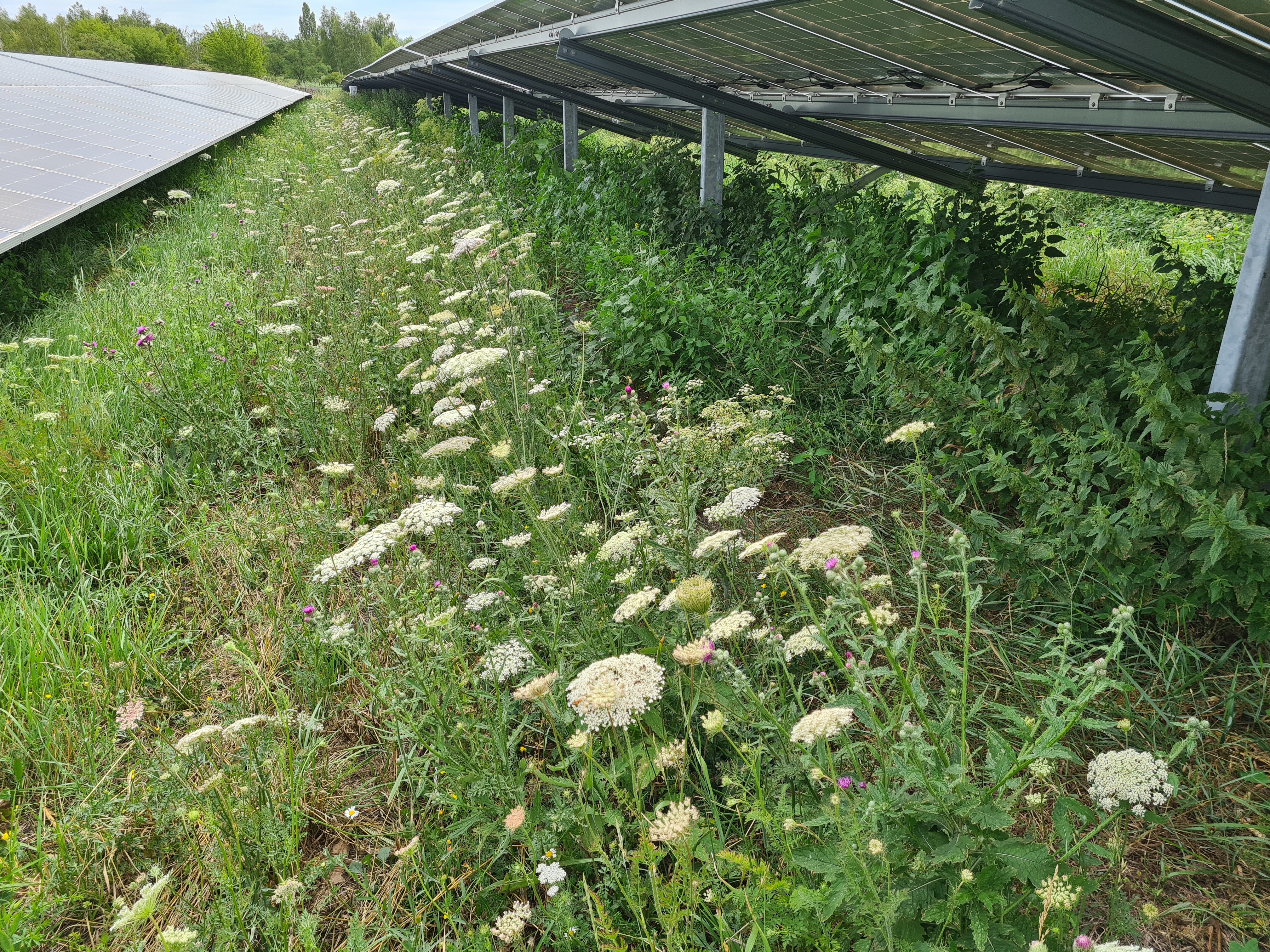
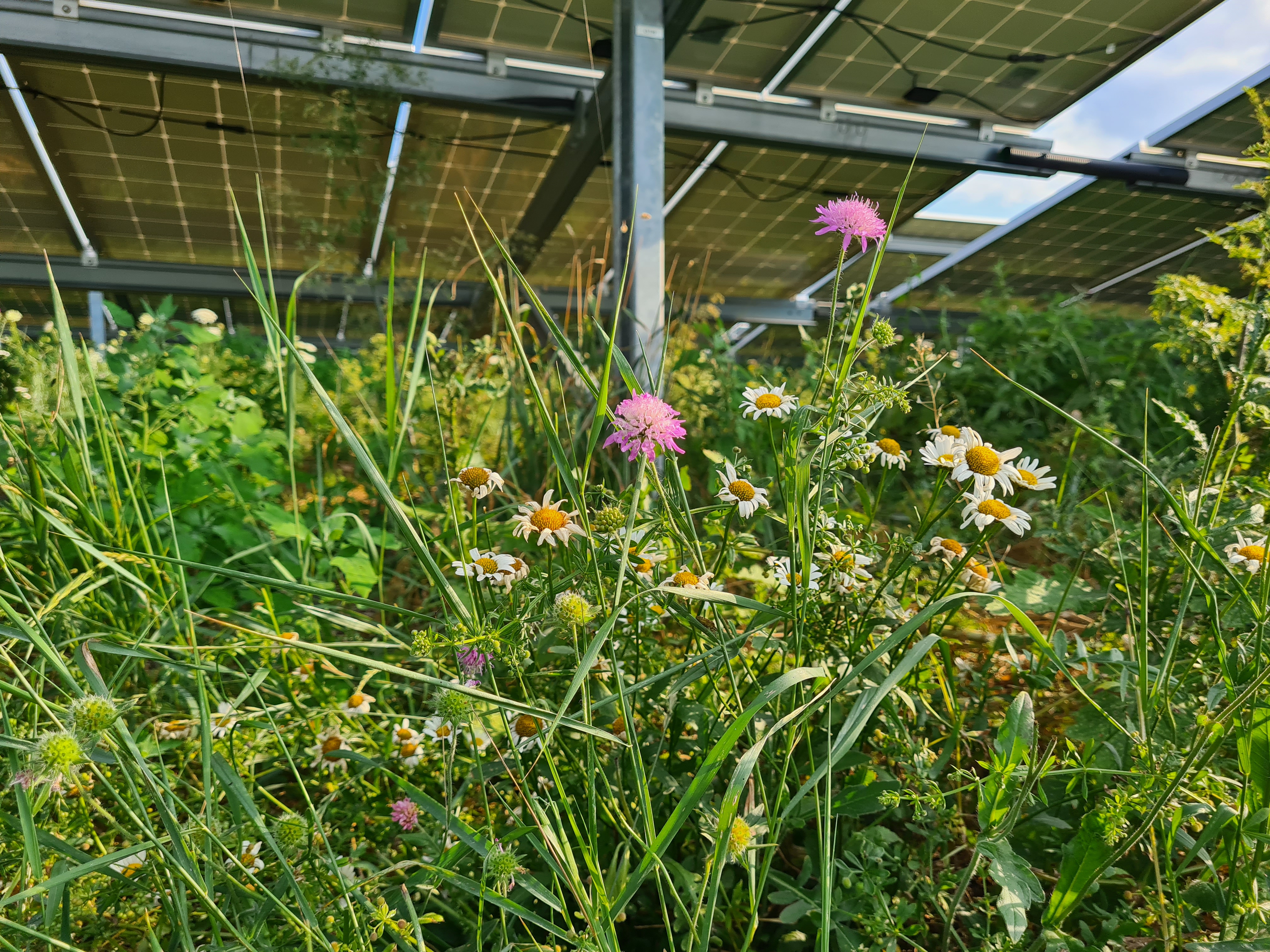
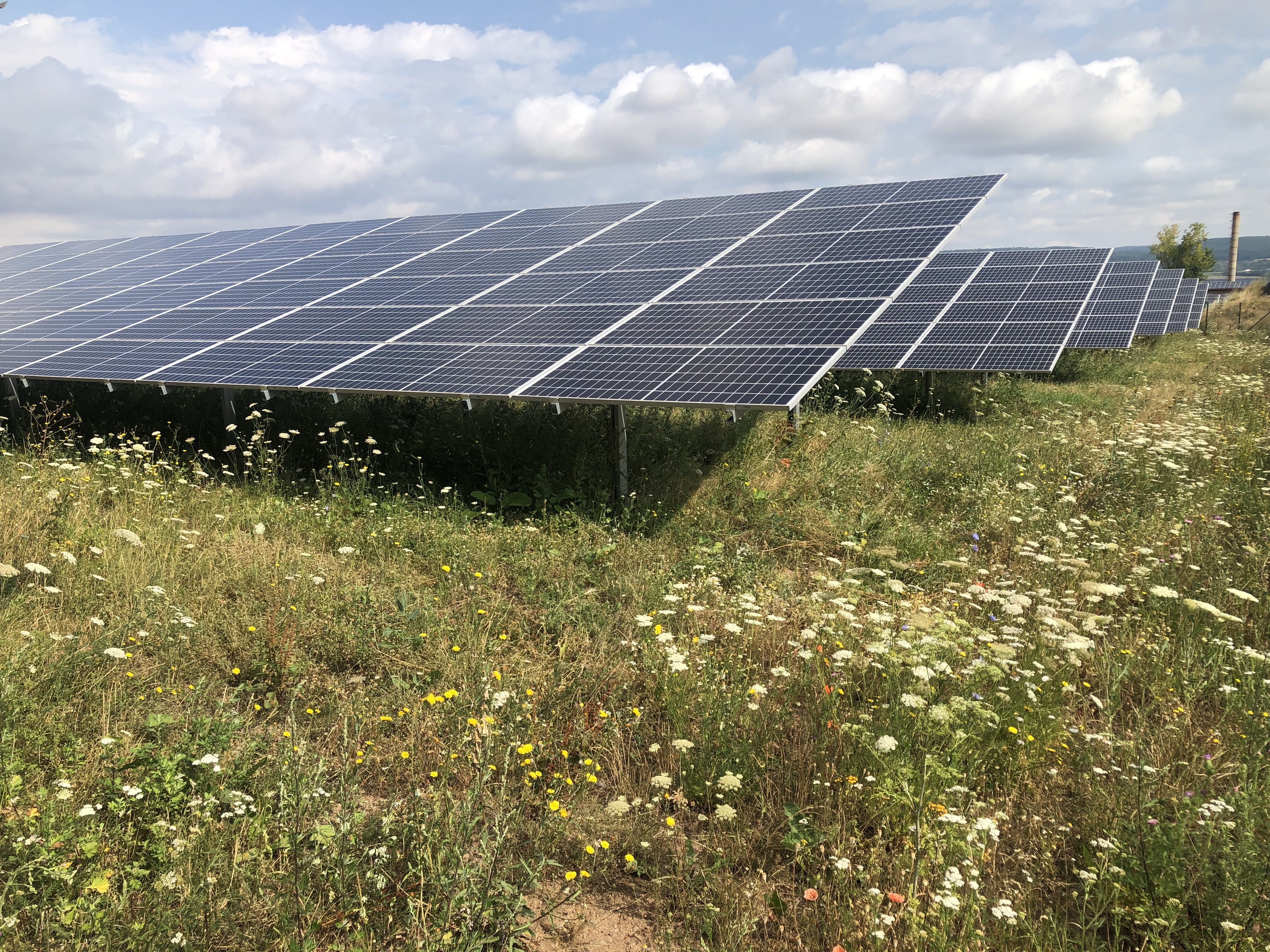
The interdisciplinary research project "BIODIV-SOLAR" develops with five corporated partners approaches to combine enhanced biodiversity and economic viability in ground mounted photovoltaic systems.
Content of the project
Content of the project
Led by Prof. Dr. Sabine Tischew, the project bundles expertise of different departments of the Anhalt University of Applied Sciences.
The task of the working group „biodiversity“ is to develop site adapted native seed mixtures from regional production to support species- and blossomrich grasslands. The seed mixtures as well as different management regimes will be tested in cooperation with the operators of the photovoltaic systems.
Furthermore, the working group „photovoltaic“ led by Prof. Dr. Ralph Gottschalg focuses energy aspects of various rack systems and mounting distances of solar pannels. Therefore innovative concepts for the measurement of abiotic parameters will be developed.
Additionally, an agrivoltaic test plant has been established at the Campus Bernburg in order to examine the compatibility of vertical PV panels, crop production with wildflower strips on arable land.

Monofacial photovoltaic system (1) and vertical bifacial photovoltaic system (2). © N. Beermann & S. Dullau 
Native seed mixtures from regional production to develop species- and blossomrich grasslands. © Fotos: S. Dullau & P. Scholz Monitoring
Monitoring
Within one year after seeding, many of the introduced wild plant species have been detected. The establishment success of the sown species and the different seed mixtures are evaluated by vegetation surveys.

Vegetation surveys of seeding species such as fall dandelion (Scorzoneroides autumnalis) and wild carrot (Daucus carota). © 1: A. Reise; 2 - 6: P. Scholz AgriPVplus
AgriPVplus
The innovative and sustainable triple-use approach AgriPVplus aims to reduce land use conflicts between agriculture, energy production and biodiversity, as well as to promote biodiversity in the agricultural landscape. As a sub-goal of the BIODIV-SOLAR project, a test facility has therefore being constructed at the Bernburg site of Anhalt University of Applied Sciences, where vertically mounted bifacial photovoltaic modules are integrated into agricultural field crop cultivation and combined with species-rich wildflower strips.The AgriPVplus system will be used to test new photovoltaic module technologies, various seed mixtures for wildflower strips and the cultivation of drought-resistant crops.

AgriPVplus. © S. Dittmann 
Floristic enhancements were implemented on an Agri-PV system near Hohlstedt. The establishment of the introduced site adapted native seed mixtures is scientifically monitored.For further information on the topic of Agri-Photovoltaics, visit our network AgriPVplus.

Agri-PV plant near Hohlstedt. © S. Dullau & P. Scholz 
Project aims
Project aims
The aims of the research project is to develop an overall concept integrating economic viability and biodiversity as well as options for agricultural uses.
Within an interdisciplinary approach the project will:
- promotes biodiversity and ecosystem services and optimize energy production of ground mounted photovoltaic systems
- enables the integration of compensatory measures in solar farms
- offers new opportunities for value creation for agriculture
Demonstrators
Demonstrators
The studies within the project take place in six solar farms in the eastern Germany federal states Saxony-Anhalt, Saxony and Brandenburg. As demonstators these solar farms will offer a wide applicability of research findings for various site conditions (for example different soil conditions).

The BIODIV-SOLAR project is implemented at eight project sites. Source: Datenlizenz Deutschland - © GeoBasis-DE / BKG, http://www.bkg.bund.de (2022), https://gdz.bkg.bund.de/index.php/default/open-data/verwaltungsgebiete-1-5-000-000-ebenen-stand-31-12-vg5000-ebenen-12-31.html, dl-de/by-2-0, www.govdata.de/dl-de/by-2-0, data changed. Construction of the demonstrators (ground-mounted PV)
Construction of the demonstrators (ground-mounted PV)
Preparations for establishing flower-rich wild plant structures in the selected solar farms began in March 2022. The existing vegetation was intensively disturbed to create favourable germination and establishment conditions for the seeding species. To achieve this, the gaps between the modules and the module-free areas in each solar park were milled.

Site preparation. © N. Beermann After site preparation, site adapted native seed mixtures were sown using equipment of varying sizes, depending on the site. The seed mixtures consisted of low-growing, perennial and site-adapted native wild plant species.

Seeding of native seed mixtures. © 1: N. Beermann; 2 & 3: P. Scholz To ensure the growth of the seedlings wasn't hindered by overshadowing, the vegetation was regularly trimmed.

Maintenance phase. © P. Scholz & M. Zaplata Impressions from the demonstrators of the BIODIV-SOLAR project
Impressions from the demonstrators of the BIODIV-SOLAR project
During the project, species- and blossomrich grasslands were developed in most of the demonstrators.

Demonstrator before seeding (December 2021), with first flowering aspect in October 2022 as well as in June 2023.
© P. Scholz
2022 impressions from the demonstrators of the BIODIV-SOLAR project. © P. Scholz & M. Zaplata 
2023 impressions from the demonstrators of the BIODIV-SOLAR project. © P. Scholz
Knowledge transfer and public relations
Upon completion of the project, an open-source, web-based planning tool for biodiverse photovoltaic systems will be made available for engineers and photovoltaic system operators.
The demonstrators will illustrate high quality measures to promote biodiversity in ground mounted PV systems for the public.
Publication: Bee-Friendly Native Seed Mixtures for the Greening of Solar Parks
Based on the experiences of the BIODIV-SOLAR project, criteria for the selection of site-adapted wild plant species were presented, utilization possibilities for wild bees were evaluated with the help of an index, and mixture examples were provided.
Land 2023, 12(6), 1265; https://doi.org/10.3390/land12061265
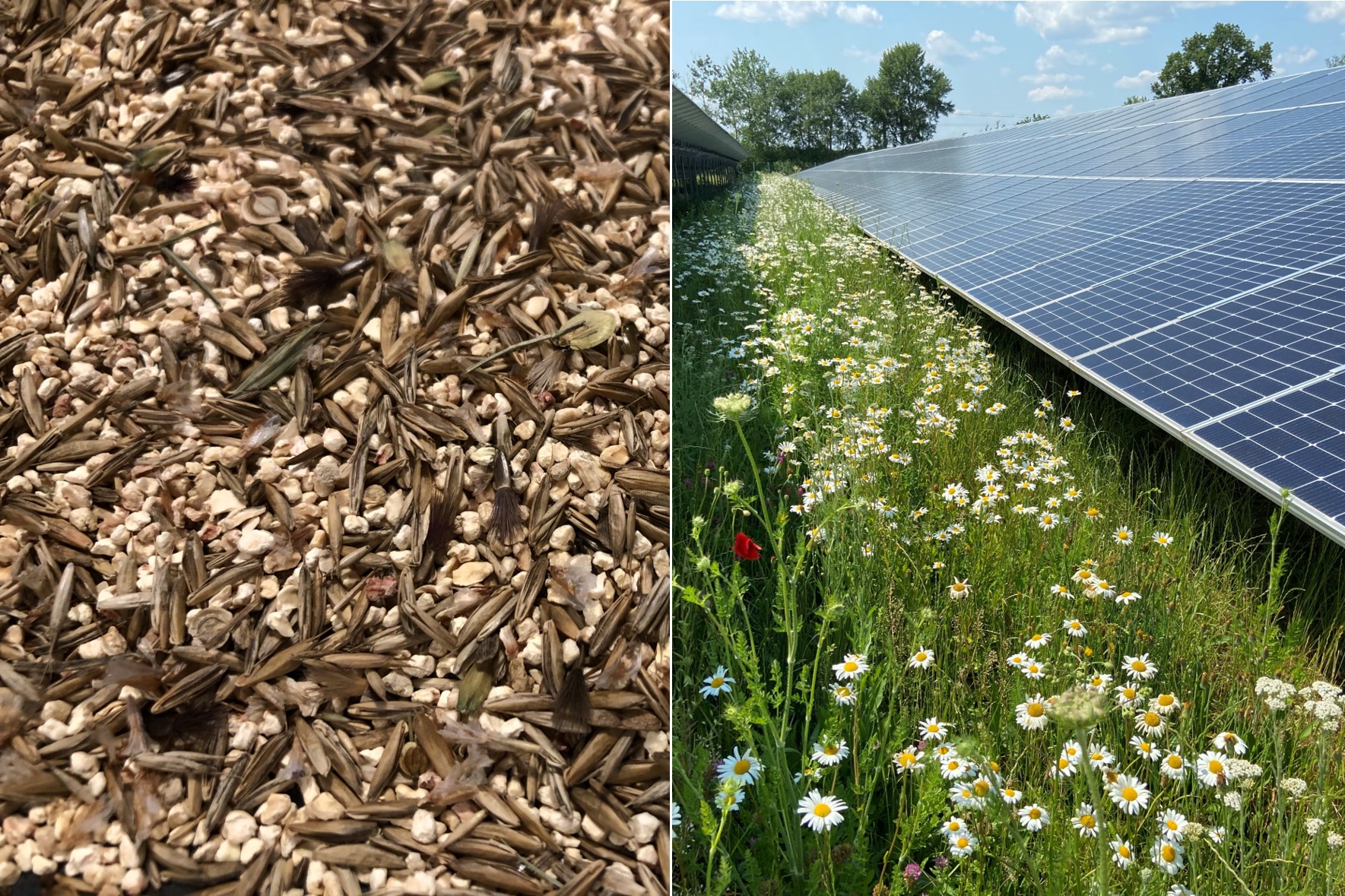
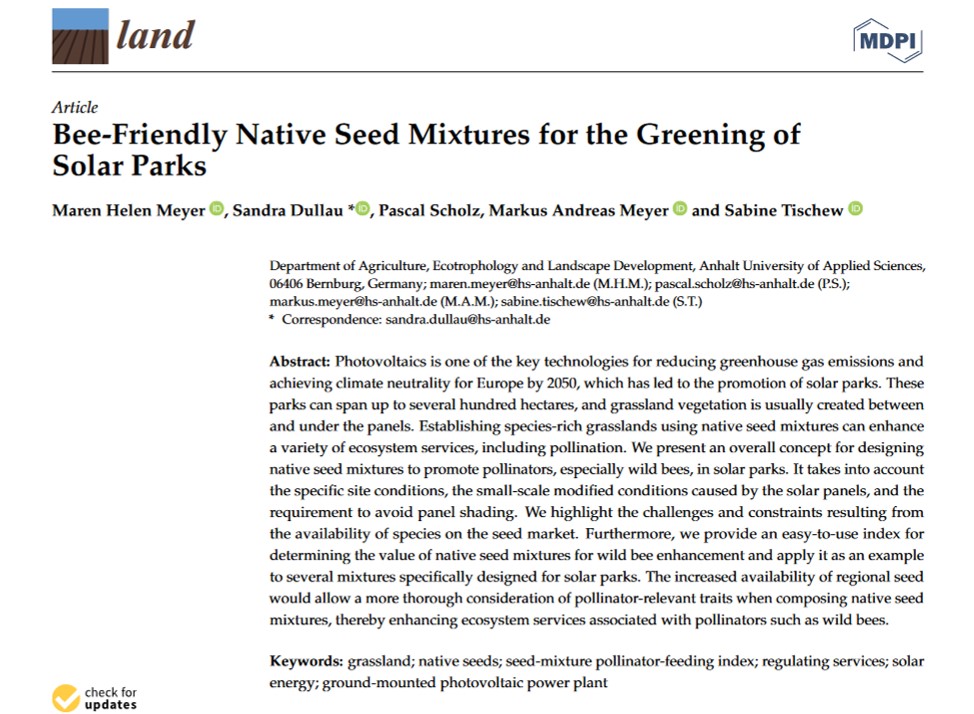
30. C.A.R.M.E.N. symposium „Drei Jahrzehnte – nachhaltig, effizient, erneuerbar!“ in Straubing
Sandra Dullau: "Gestaltungsmaßnahmen für eine naturverträgliche Freiflächen-Solaranlage zur Steigerung der Biodiversität"
AgriPVplus in the media
The "AgriPVplus" concept was also presented in an ARD report on german television.
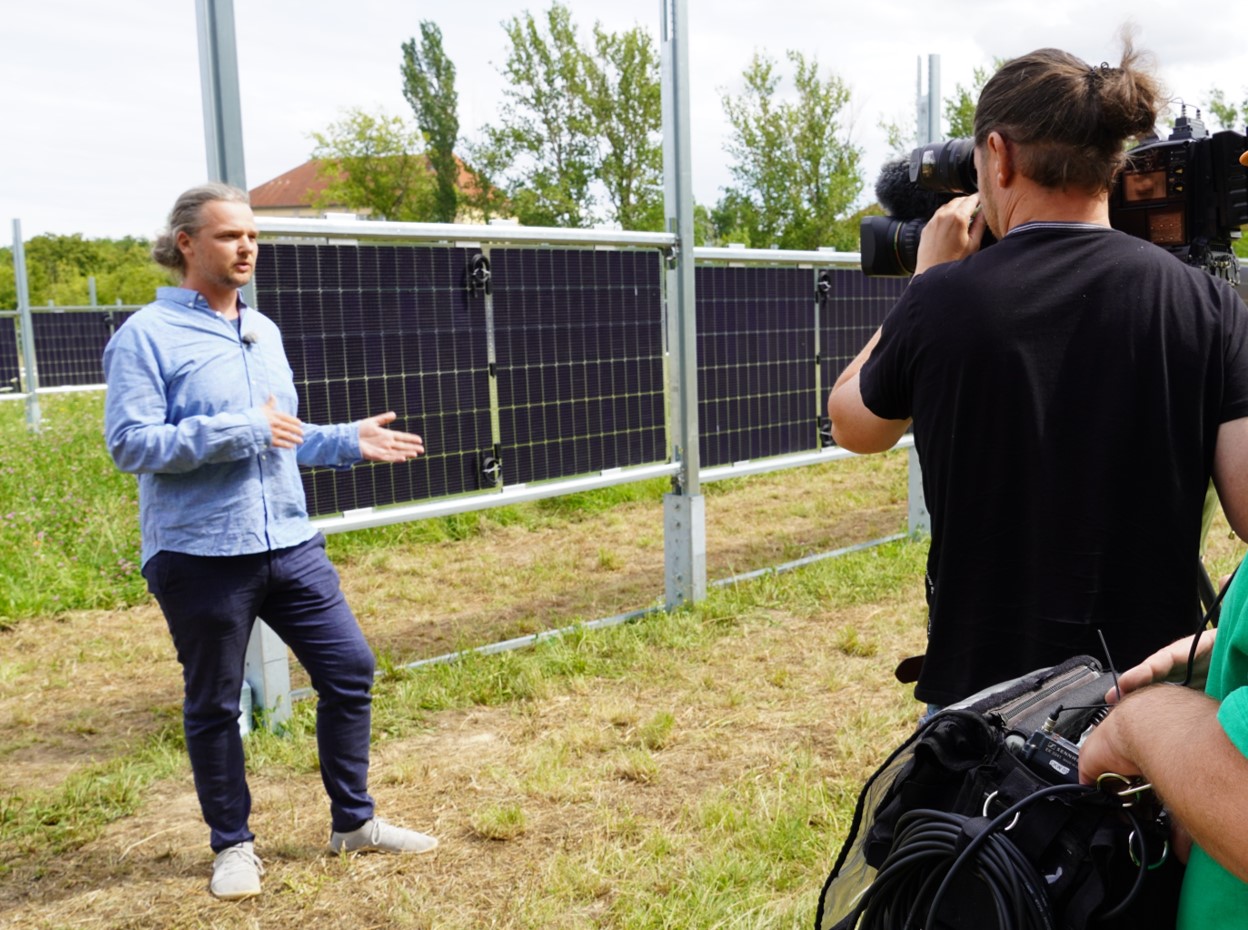

Public relations activities
The demonstrators of the BIODIV-SOLAR project are regularly used for public relations activities. At a meeting of the partners of the BIODIV-SOLAR project, two demonstrators were visited. The Kompetenzzentrum Naturschutz und Energiewende (KNE) also visited the demonstrators to inform about the successes and challenges in promoting biodiversity in PV plants.

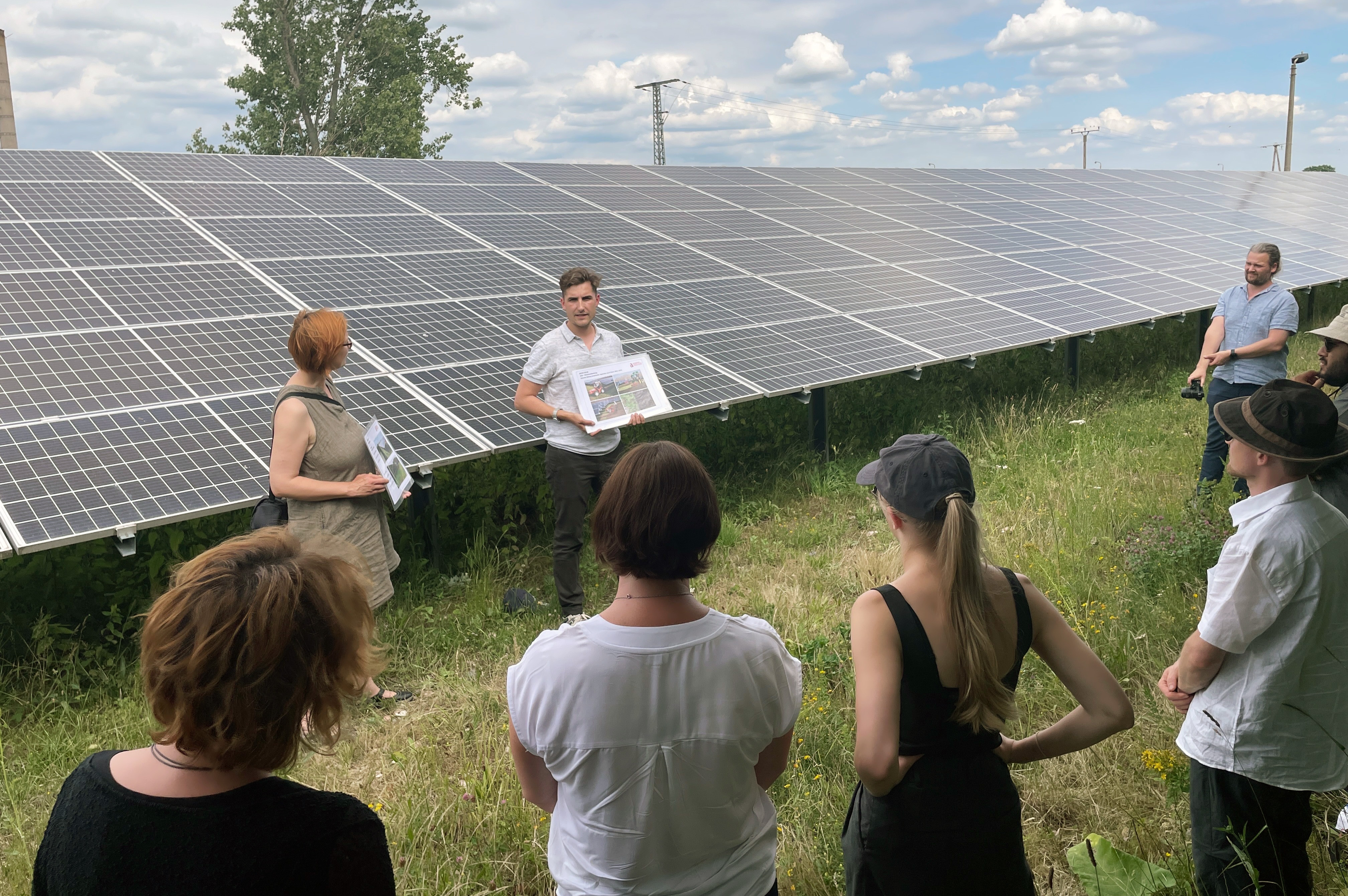
Press trip of the Federal Minister for the Environment
Steffi Lemke, the Federal Minister for the Environment, personally updated herself on the project's progress. During her press trip, she was presented with the first results of the biodiversity-enhancing measures from one of the six demonstrators, in collaboration with EVH GmbH.
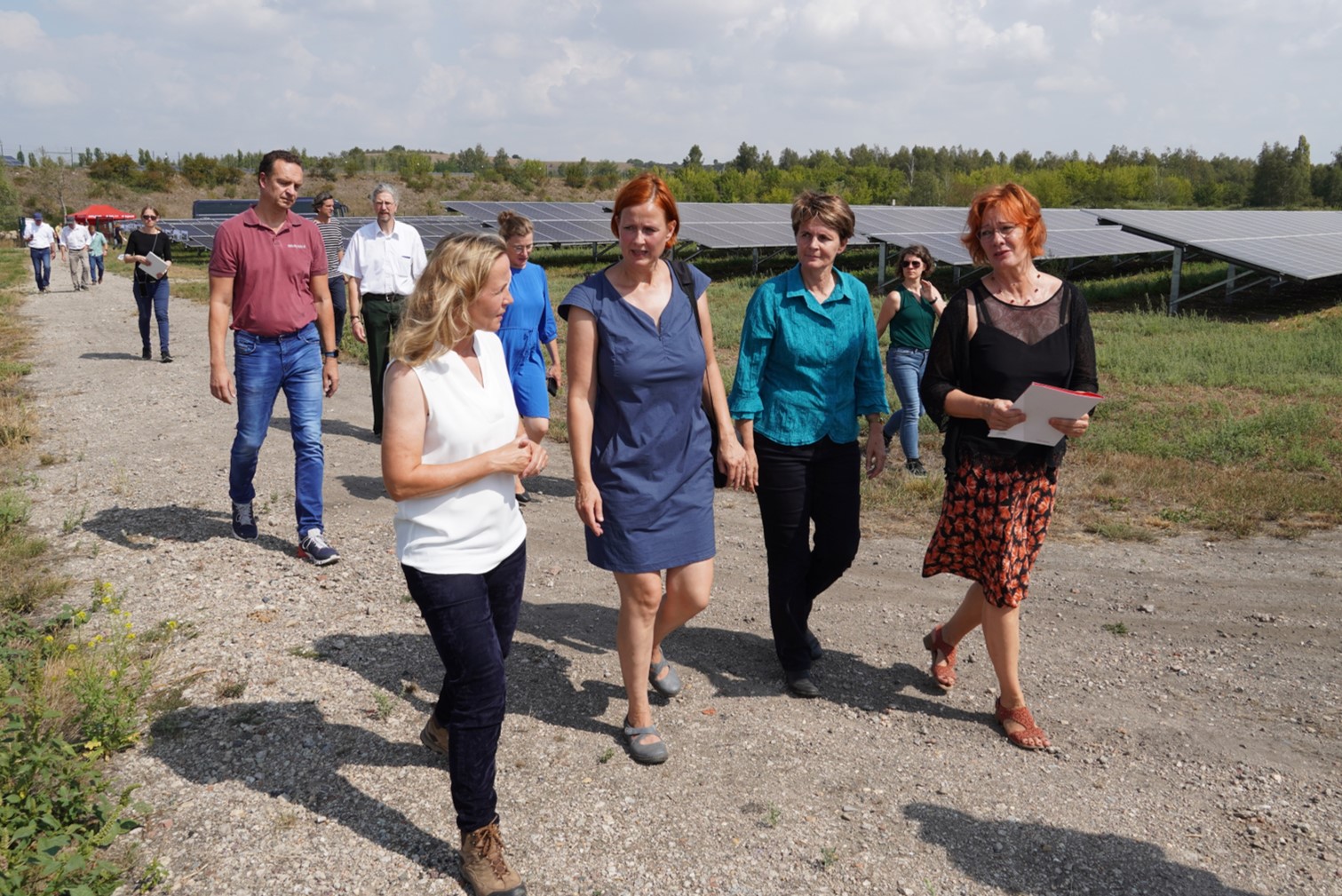

Project leader: Prof. Dr. Sabine Tischew
Coordination: Sandra Dullau, Sebastian Dittmann
Researchers: Maren Helen Meyer (M. Sc.), Pascal Scholz (M. Sc.), Dr. Markus Zaplata, Hugo Sánchez Ortiz (M. Sc.)
Cooperation partner:EVH GmbH, enviaTHERM, TOTAL Energies, Sunset Energietechnik GmbH, Next2Sun GmbH
Funded by: Bundesministerium für Bildung und Forschung, Programm FH-Kooperativ
Funding code: 13FH133KX0
Duration: 01.09.2021 - 30.04.2025

